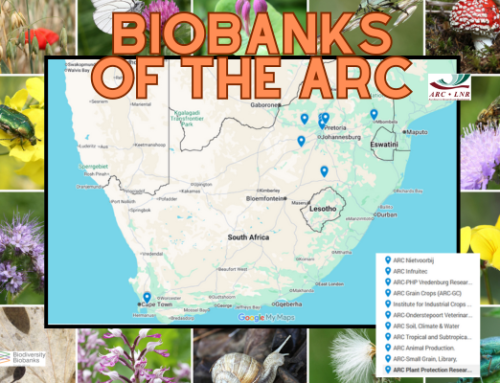BBSA Launch: Celebrating Knowledge That Makes A Difference
South Africa’s biodiversity biobanks can be found on university campuses, in dedicated research facilities and even at national parks, handling live cultures of bacteria and single-celled organisms, blood samples from sheep and goats (and rhinos and leopards), seed and germplasm from domesticated and wild plants, and more.
“There are many biobanks in South Africa, handling many different kinds of samples – over a million of them, I would estimate – collected over a long period of time,” noted Professor Michelle Hamer, Project Lead for the Biodiversity Biobanks South Africa (BBSA).
“But until recently, everybody was working in isolation. Each biobank had to find their own way of handling their challenges, their own ways of collecting and storing and analyzing samples. Not only was this incredibly inefficient, but it also created lots of issues around trust and credibility – and also accessibility.”
The launch of the Biodiversity Biobanks South Africa (BBSA) in March 2023 is a milestone in the conservation and management of biodiversity samples: the coming-together of a diverse group of biobank managers to form a network of institutions dedicated to improving the quality of (and access to) live samples from plants, animals, bacteria and fungi in one of the world’s most megadiverse regions.
As a research infrastructure project funded by the Department of Science & Innovation (DSI) and co-ordinated and hosted by the South African National Biodiversity Institute (SANBI), the BBSA is a network of participating institutions that hold biodiversity biobanks, rather than a single facility.
The BBSA provides a coordinating structure across several of South Africa’s existing biodiversity biobanks, with the main aim of increasing the range and quality of samples stored and/or distributed, and increasing and improving access for research and development through a single, centralised data portal, which will also allow more strategic collection of samples.
The Biodiversity Biobanks celebrates South Africa’s many biobanking initiatives – from bacteria to potatoes to rhinos, we have them all.
BBSA: Preserving Our Past, Protecting Our Future
The BBSA was initiated in 2018, and after a long process of community engagement and proposal development and approval, the agreement between SANBI and the DSI was finally signed at the beginning of 2021.
Since then, the BBSA has (among other things):
- Reviewed legislation for collecting, housing and distributing samples
- Developed a Draft Access Policy
- Become a member of the Global Genomic Biodiversity Network (and extended membership to participating biobanks)
- Upgraded sample databases for participating institutions
- Recruited staff at core institutions, including curators and technicians, who have helped biobanks meet their objectives
- Allocated about R35m in funds over two years to core biobanks for upgrading storage facilities, procuring freezers, monitoring and quality assurance equipment, and more.
“Increasingly, good science is about collaboration and coordination,” said Dr Imraan Patel, DSI Deputy Director General responsible for Research and Development Support. ”And coordination doesn’t happen by money alone. While we are proud to have been able to fund this effort to build research infrastructure, the hard work was done by you, the community. Of course, the hard work isn’t over yet – but I’m sure the impact of these partnerships will be felt at a local and even global level.”
But the importance of the BBSA extends beyond just the biobanking community – as SANBI CEO Mr Shonisani Munzhedzi explained.
“At SANBI, we understand that the impact of the biodiversity sector is broad,” he said. “Our understanding of biodiversity affects our understanding of the arts, culture, health, technology, sport and more. The way we manage our biodiversity affects our economy, our environment, and our society. And we can’t manage what we don’t know. So the work done by the BBSA is of the utmost importance.”
The launch formed part of a three-day Biodiversity Biobank SA Forum, which brought the country’s biodiversity biobank community together to discuss the value and role of the biobanks in food security, conservation, biotechnology innovation and capacity development.
“While this certainly does not signal the start of our work, it is a chance to celebrate our progress and to look forward to future achievements,” noted Professor Hamer. “Our work is just beginning – and together, we will make a difference.”

What are biodiversity biobanks?
Biodiversity biobanks are repositories of biologically relevant resources, including reproductive tissues such as seeds, eggs and sperm, other tissues including blood, DNA extracts, microbial cultures (active and dormant), and environmental samples containing biological communities….






